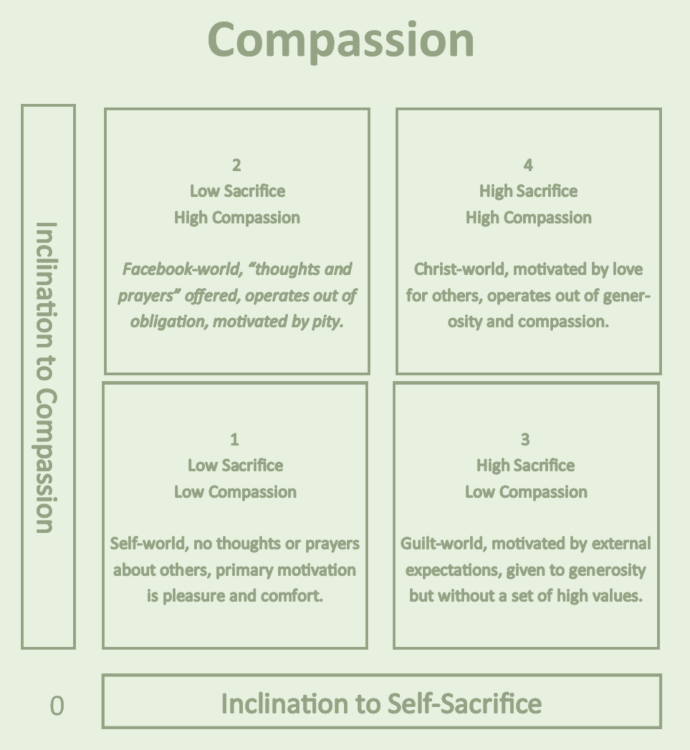In the second article of this series, we showed that in the New Testament “Compassion” is always connected to some sort of response or action. That action might be as simple as a hug or a handwritten note, and it might be as big as something like providing a meal, visiting the hospital, or providing transportation.
This article completes the series by taking a look at two components of compassion: intention and willingness to make personal sacrifices. Without these two elements, there can be no compassion. And let us be clear. Saying things like “my thoughts and prayers are with you,” is, many times, no indication of compassion, but is only an attempt to assuage one’s belief that s/he ought to do something.
Facebook and similar social media tools are often the means by which personal guilt is quelled. Expressions like “I’m so sorry,” and “My thoughts and prayers are with you,” fall like dead leaves leaving the person they are directed to still alone and in pain. The most honest thing to say at such times is, “I don’t intend to do anything for you except think about you for a brief moment.” But we’d never say something so crass out loud.
The chart below cracks open the idea of compassion. It forces us to ask the question, “Am I truly compassionate or am I just fooling myself? Which world do I operate in: Self-world, Facebook world, Guilt-world, or Christ-world? Another question lingers on the fringe of this as well. “Am I confusing pity with compassion?”


